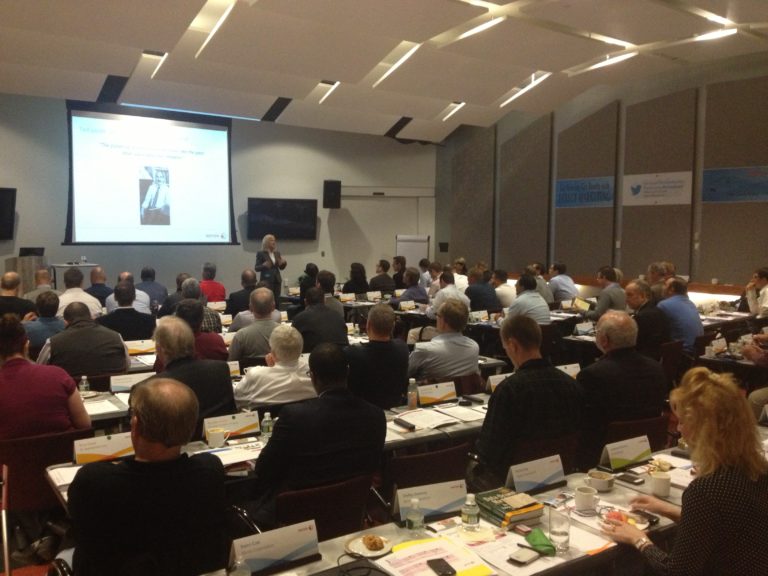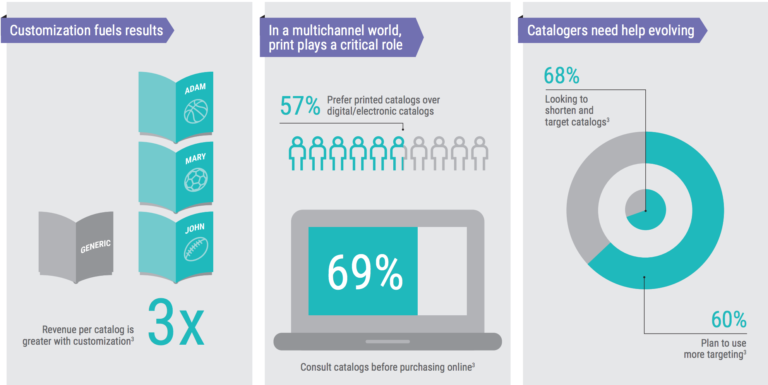Written by Jo Oliphant
Manager, Continuous Feed Europe, Xerox Corporation
How does your business communicate to your customers? Have you moved everything online because of postal costs and environmental concerns?
Sending physical communications to customers can be a costly venture, depending on where your business is situated and combined with the location of your customers. While there is no denying many customers have come to accept receiving statements and information electronically, saving the company in postage costs, there are still a very large number of consumers who still want, and prefer, paper statements in their hands. Personally, I still quite like receiving paper statements – especially given that some companies (you know who you are!) make it incredibly difficult to access their websites through complex layers of security, which is why I continue to request traditional hard copy. And while a preference for some, physical mailings are a necessity for others. Demographics play a huge role, but many consumers simply do not have reliable online access. Consumer preferences aside, there is a much deeper issue here – as some companies just aren’t “getting it” in terms of their customer engagement strategies.

When a company stops sending paper communications, it puts a halt to the regular vehicle it had that got itself through your letterbox, out of the envelope, in front of your eyes and read an average of three (yes, three) times. The first time was while sifting through your stack of mail after retrieving it. Then, if you’re like me, the mail sits on the kitchen table before being sorted and re-read to check through everything. Finally, it is looked at a third time as you file or archive it. A number of companies just do not understand that these three hits are one of the best marketing tools they have to capture your interest. In the absence of hard copy – what do they revert to?
- Emails that get caught by the spam filter
- Emails that are distrusted because they’re believed to be false
- Emails that are trashed or unread because, let’s be honest, who can really stand to receive 150 emails a day
Worse still are the hard copy mailings containing really poor marketing messages that get through your front door and do not capitalise on the analytics and back-end data that they’ve captured on you.
Side Note: there’s a third underlying and less well understood point about all of this, too. In this race to eliminate paper for environmental concerns (because apparently anything online must be green) we fail to understand the environmental credentials of paper vs. online statements, but the issues are huge and very complex. For now let’s say the jury is still out and I will revisit in a separate blog, but just so you know where I’m going on this one – paper is a carbon sink – when we bury it, the CO2 inside it is released into the atmosphere slowly. Similarly, email also needs energy to spin every disk, network line and so on to get information to you….
To send physical documents means using some form of postal service. Postal companies around the world have become quite inventive in their charging structures and most employ some kind of formula based on weight or size (or indeed both). Some countries already have a relatively low threshold on postage weight set at 20 grams. As it happens, 3 A4 sheets of 80gsm paper and a window DL envelope is 19.97 grams. I suspect if the country you live in doesn’t have restrictions like these, then it’s more a case of ‘when’ and not ‘if’ this will be introduced.
Putting a 4th sheet of paper in that envelope can be something of a challenge as it takes the envelope into the next postal bracket. At Xerox, we’ve been exploring printing on lower weight commodity offset papers to take advantage of our technology with vibrant waterless inks with no show-through on the page…and on 60gsm paper, that fourth sheet is a reality without the additional postage cost! Taking this even further as we explore the limitations of waterless inkjet, we can add as many as five additional sheets of paper on top of an 80gsm headed introductory letter into an envelope without breaching the 20gsm limit – just imagine what you can squeeze into that envelope with 12 A4 impressions! Of course, using lighter papers isn’t only about saving you postage costs, but also about reducing your expenditure on paper.
What’s your business strategy for communicating with customers now and into the future? E-presentment, hardcopy or both… and how do you measure success?
With Hunkeler Innovationdays now here, Xerox will be helping customers answer these questions and many more. Be sure to subscribe to this blog to stay up-to-date on the latest news, as well as follow the conversation using #XeroxHunkeler on Twitter.


